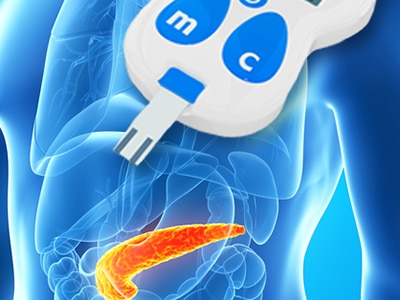Diabetes
Diabetes is a disease that occurs when your blood glucose, also called blood sugar, is too high. Over time, having too much glucose in your blood can cause other health problems such as heart disease, nerve damage, eye problems, and kidney disease. You can take steps to prevent or manage diabetes.
According to the Centers for Disease Control and Prevention’s National Diabetes Statistics Report, an estimated 38.4 million people in the United States, or 11.6% of the population, have diabetes. About 1 in 5 adults with diabetes don’t know they have the disease. An estimated 97.6 million American adults have prediabetes, which means their blood glucose levels are higher than normal but not high enough to be diagnosed as diabetes.

Many areas of the body can be affected by diabetes. Learn about diabetes health problems.
Diabetes Basics
Statistics
Diabetes Topics
- A1C Test & Diabetes
- Artificial Pancreas
- Continuous Glucose Monitoring
- Diabetes & Foot Problems
- Diabetes & Pregnancy
- Diabetes & Sexual & Urologic Problems
- Diabetes, Gum Disease, & Other Dental Problems
- Diabetes, Heart Disease, & Stroke
- Diabetes Tests & Diagnosis
- Diabetic Eye Disease
- Diabetic Kidney Disease
- Financial Help for Diabetes Care
- Gestational Diabetes
- Healthy Living with Diabetes
- Insulin, Medicines, & Other Diabetes Treatments
- Low Blood Glucose (Hypoglycemia)
Diabetes Discoveries & Practice Blog
Community Health & Outreach
Healthy Moments Radio
Listen to health tips from Dr. Rodgers in his weekly 1-minute episodes.
- Diabetes and the Importance of a Full Night’s Sleep
- Ace Your A1C Tests to Manage Diabetes
- Manage Your Diabetes ABCs to Prevent Health Problems
Clinical Trials
Research Discoveries & News
- NIH launches large study to tackle type 2 diabetes in young people
- Use of metformin in adults with diabetes linked to lower risk of long COVID
- Bariatric surgery provides long-term blood glucose control, type 2 diabetes remission
- Celebrating the 50th Anniversary of Diabetes Research Centers






